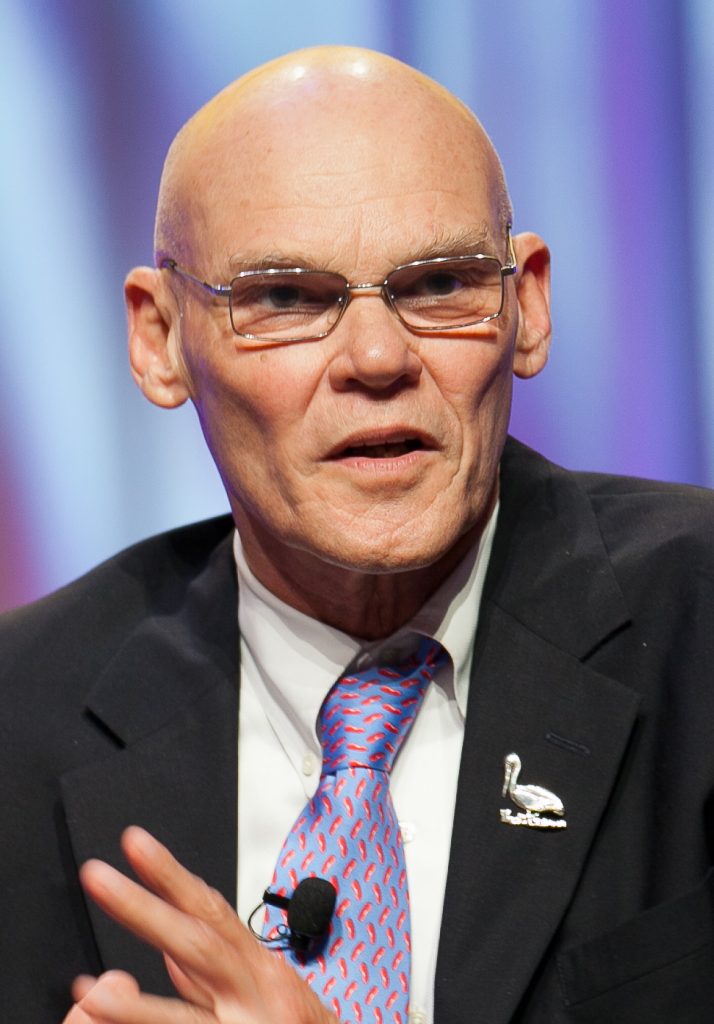Your cart is currently empty!
Strategist Who Made Bold Prediction on When Trump’s Administration Will ‘Collapse’ Claims It’s Now Happened

James Carville, a veteran Democratic strategist known for his blunt political commentary, has doubled down on a prediction he made earlier this year: that Donald Trump’s second administration would collapse, and faster than anyone expected. In a series of recent interviews, Carville now says the collapse has already happened.
Who Is James Carville?
James Carville is a longtime political consultant and commentator who rose to national prominence as the lead strategist for Bill Clinton’s successful 1992 presidential campaign. With decades of experience in Democratic politics, Carville has built a reputation for cutting analysis, colorful language, and unwavering partisanship.

Beyond his Clinton-era fame, Carville has remained a fixture in American political commentary, often appearing on networks like CNN and MSNBC. Known for his fiery metaphors and combative tone, he has developed a reputation as a political firebrand who doesn’t mince words.
His influence within Democratic circles endures, though his penchant for bold declarations sometimes earns him criticism for veering into hyperbole. He’s frequently appeared on cable news and has contributed to major publications, offering sharp takes on American political dynamics.
The Original Prediction
Carville first made his bold prediction shortly after Trump returned to office in January 2025. Speaking to Mediaite’s Dan Abrams, Carville cited Trump’s rapidly declining approval ratings, the mass dismissal of federal employees, and a flurry of controversial executive orders as indicators that the administration wouldn’t hold up long under scrutiny.
According to Carville, polling data showed Trump’s approval ratings had already fallen from the low 50s to the upper 30s just weeks into his second term. “Democrats need to play possum,” Carville advised at the time. “This whole thing is collapsing.”
“It Happened Quicker Than I Imagined”
Now, barely three months into the new term, Carville says the collapse has already occurred. During an interview with CNN’s Michael Smerconish, he remarked: “I had no idea. I thought I’d have to wait longer for the imminent collapse. It happened even faster than I could imagine.”
He pointed to a series of recent events as evidence, including what he called “Signal-gate” — a report that war plans had been inadvertently leaked to a journalist via the encrypted messaging app Signal. The leak, revealed by Atlantic journalist Jeffrey Goldberg, reportedly involved sensitive military planning and sparked concerns over security lapses at the highest levels of government. Carville and others viewed the incident not as a one-off blunder but as a symptom of broader disorganization and recklessness within the administration.
Combined with what Carville described as chaotic decision-making, infighting among top aides, and unclear communication strategies, the Signal-gate fallout further convinced him that the administration had unraveled.
“Let’s take the middle ground here and say ‘it’s collapsing’,” he offered. “I’ll meet you halfway, but that’s about all I can do.”
Carville’s Logic: Not Just Polls, But Governance
While some critics highlight that Trump’s approval ratings are actually higher now than they were at the same point in his first term, Carville argues that polling is not the only metric that matters. He believes the administration’s internal dysfunction and public missteps signal a deeper problem.
“It doesn’t matter what the party rating is, what matters are elections,” he told CNN. He described the government as being run by “nincompoops,” “blockheads,” and “buffoons,” and called the current situation the most serious crisis the U.S. has faced in 80 years.
In his view, the collapse is not just about public perception but about the erosion of the rule of law and the breakdown of institutional norms. “We’re looking at the end of the rule of law,” he warned.

Critics Remain Skeptical
Not everyone is convinced. Trump’s approval ratings, while not stellar, are showing signs of resilience. A Gallup poll from the first quarter of 2025 places his approval at 45% — up slightly from the 42% he had at the same time in 2017. A Fox News poll conducted on the president’s first 100 days showed only 44% of Americans approving of the job he’s doing.
Analysts suggest that the polling bump is driven largely by specific demographics, particularly older voters and working-class Americans in the Midwest and South, who continue to support Trump’s immigration and economic policies. His administration’s hardline stance on border security and deregulation remains popular among certain conservative blocs, even as critics decry internal dysfunction.
Some critics have also pointed to Carville’s own track record. Just before the 2024 election, he confidently predicted in a New York Times op-ed that Kamala Harris would win the presidency, stating: “Ms. Harris will be elected the next President of the United States. Of this, I am certain.”
Given that Trump returned to the White House instead, some may take his latest declaration with a grain of salt.

A Moment for the Democrats?
Despite the skepticism, Carville sees this moment as an opportunity for the Democratic Party. In his February op-ed, he urged Democrats to stand back and allow the Trump administration to unravel under its own weight.
“Sometimes the most powerful thing we can do is retreat on the immediate battlefield — and advance in another direction,” he wrote. “It won’t take long. Public support for this administration will fall through the floorboard. It’s already happening.”
Whether or not the broader public agrees that the Trump administration has “collapsed,” Carville’s remarks are stirring conversation within political circles — and may foreshadow how the opposition chooses to position itself in the coming months.
What’s Next?
Carville’s call to “play possum” suggests that Democratic leadership might benefit more from strategic silence than aggressive counter-punching — at least for now. But the real test may come as the party looks to define itself heading into the 2026 midterms. Some within the party see this as a critical window to reset messaging around core issues like reproductive rights, voting access, and economic inequality, while distancing from internal fractures exposed during the last election cycle.
On the other side, the Trump administration is likely to double down on its messaging of strength and persecution, appealing to its base by framing critics like Carville as part of an entrenched political class trying to derail their mandate. Whether the administration can stabilize and deliver on campaign promises could ultimately determine whether Carville’s declaration of collapse holds — or proves premature.
For voters caught in the crossfire of partisan messaging, the next few months may offer more clarity — or more chaos.
This article is co-published with Social Sweethearts GmbH
